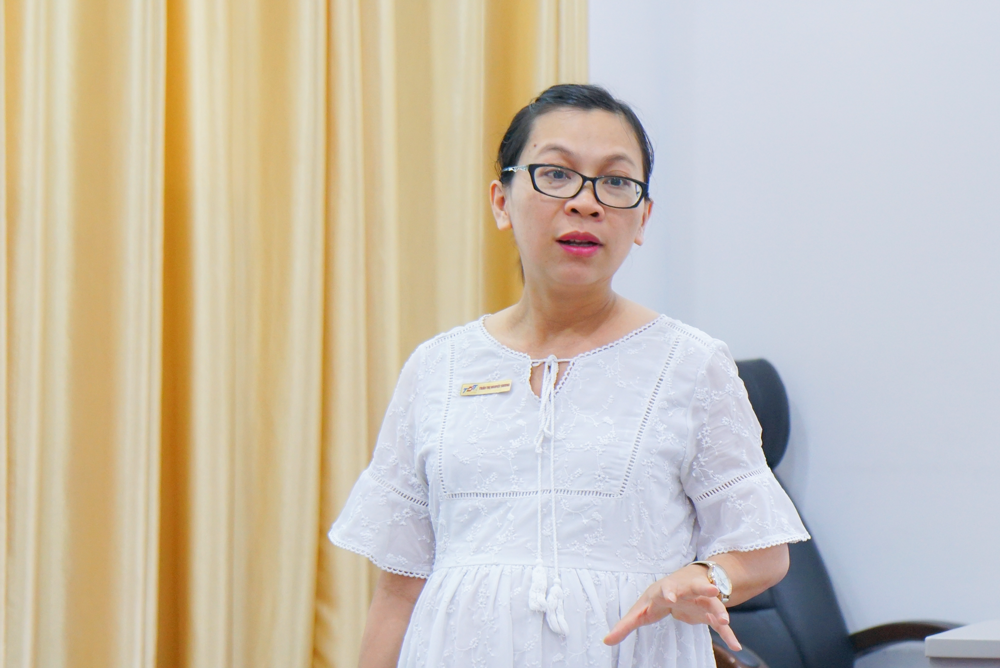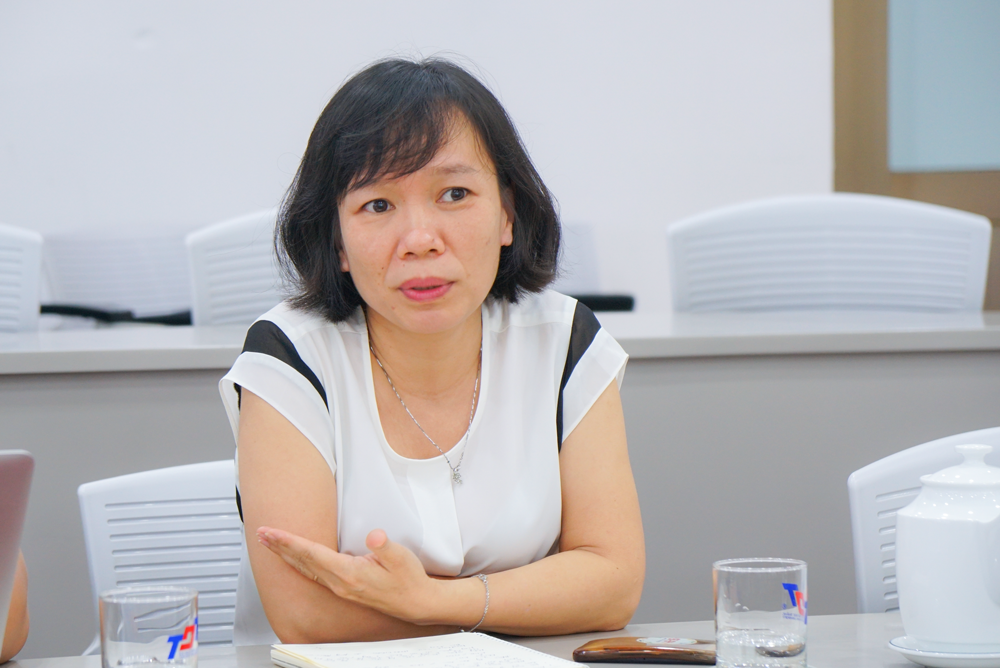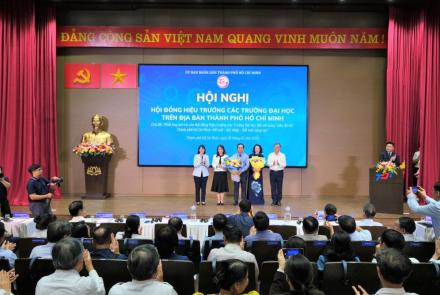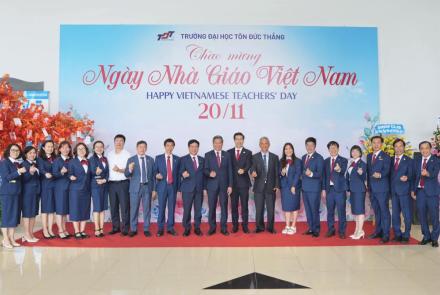Ha Noi University of Public Health exploring TDTU's model of university autonomy
On June 4, 2019 morning, Heads of the Student Affairs Department and Library of Ha Noi University of Public Health visited and learned about the autonomy model of Ton Duc Thang University (TDTU). TDTU Heads of the Student Affairs Department and Department of Testing & Quality Assurance, Dormitory and Library welcomed the delegation.
MSc. Tran Thi Nguyet Suong, Head of the Department of Testing & Quality Assurance introduced about the university development towards research university and quality management policy based on the goal, quantification and effectiveness of TDTU. The basic points of this governance model include: setting goals, building a legal framework, standardizing, monitoring rewards - penalties, saving and income policies according to efficiency. She also said: “Participating in international accreditation helps TDTU realize what is lacking in order to strive to improve, approach the quality of top universities in the world, and get more attention from foreign partners and human resources.”

Although visiting many places to experience and learn, MSc. Nguyen Hai Ha, Director of the Library Center, Ha Noi University of Public Health expressed: "I was not aware that in Vietnam there was such a standard university, from very little to bigger things. What I am most impressed by is the University's working philosophy, which is a guideline for people to understand and share, work on the principle of serving. I think this is the reason for TDTU's development, which other units, especially our university, need to learn. This trip really made us convinced. ”

After the visit and specific explanation, the delegation really understood more about the model of a university autonomy, the nature of 5S and the student education program. When returning, the delegation will have suggestions to apply this model; and will send more units of the University to approach and learn.



